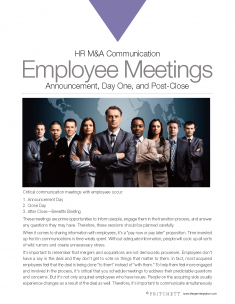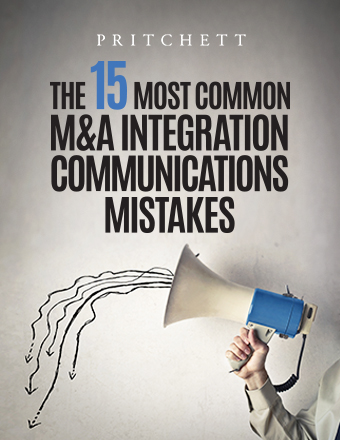Initial employee meetings are prime opportunities to inform people, engage them in the transition process, and answer any questions they may have. Therefore, these sessions should be planned carefully.
When it comes to sharing information, it’s a “pay now or pay later” proposition. Time invested up front in communications is time wisely spent. Without adequate information, people will cook up all sorts of wild rumors that create unnecessary stress.
It’s important to remember that mergers and acquisitions are not democratic processes. Employees don’t have a say in the deal and they don’t get to vote on things that matter to them. In fact, most acquired employees feel that the deal is being done “to them” instead of “with them.” To help them feel more engaged and involved in the process, it’s critical that you schedule meetings to address their predictable questions and concerns. But it’s not only acquired employees who have issues. People on the acquiring side usually experience changes as a result of the deal as well. Therefore, it’s important to communicate simultaneously with employees on both sides of the deal.
When planning for meetings, managers should remember that it is okay to say ...





